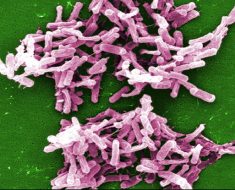More than 10 million people have now received their COVID-19 booster or third jabs, the latest figures show, ensuring the vital protection they have secured from their first two doses is maintained over the winter months.
A total of 10,062,704 people have received their booster and third jabs in the UK. 45,836,791 people have received two doses (79.7%) and 50,234,416 people have received one dose (87.4%). Seven in 10 over 80s in England are already vaccinated with top-up jabs.
The National Booking Service will be updated tomorrow (Monday 8 November) to allow those eligible for a booster vaccine – people over 50 and those most at risk of COVID-19 – to pre-book their jab five months after their second dose.
People will still receive their vaccine six months after their second dose, but the change will speed up the vaccination programme by allowing people to receive a jab the day they become eligible, rather than waiting for a convenient appointment.
People will also be able to book by calling 119 and can get vaccinated at hundreds of walk-in sites across the country six months after their second dose without an appointment. Those eligible can use the NHS online walk-in finder to locate the most convenient site.
More than one million people in London, Midlands, North East and Yorkshire, North West and South East have received the top-up jabs. Elsewhere:
East of England – 996,164 Midlands – 1,552,387 North East and Yorkshire – 1,388,202 North West – 1,126,027 South East – 1,392,592 South West – 956,896 London -1,026,423
COVID-19 booster vaccines have been delivered or booked in at every older adult care home in England where safe to do so, with almost nine in 10 care homes already visited.
Health and Social Care Secretary Sajid Javid said:
More than 10 million people across the UK now have the vital protection boosters provide, further building our wall of defence against this awful virus.
This a phenomenal achievement and I want to thank everyone working on the rollout and everyone who has come forward for their jab.
We know immunity begins to wane after six months, and booster jabs will ensure our most vulnerable are protected over the winter.
Please do not delay – get your vaccines as soon as you can to protect yourself and your loved ones this winter so we can keep the virus at bay."
The colder weather traditionally leads to increased transmission of viruses and will be challenging for the NHS.
Vaccines give high levels of protection but immunity reduces over time, particularly for older adults and at-risk groups, so it is vital that vulnerable people come forward to get their COVID-19 booster vaccine to top-up their defences and protect themselves this winter.
The latest evidence from SAGE shows that protection against symptomatic disease falls from 65%, up to three months after the second dose, to 45% six months after the second dose for the Oxford/AstraZeneca vaccine, and from 90% to 65% for the Pfizer/BioNTech vaccine. Protection against hospitalisation falls from 95% to 75% for Oxford/AstraZeneca and 99% to 90% for Pfizer/BioNTech.
Although the vaccine effectiveness against severe disease remains high, a small change can generate a major shift in hospital admissions. For example, a change from 95% to 90% protection against hospitalisation would lead to doubling of admissions in those vaccinated.
The booster programme is designed to top up this waning immunity. Early results from Pfizer show that a booster following a primary schedule of the same vaccine restores protection back up to 95.6% against symptomatic infection.
Vaccines Minister Maggie Throup said:
We are making brilliant progress with the COVID-19 booster programme and that's testament to the tireless dedication of the NHS, and GPs, pharmacies and their teams.
Booster vaccines will ensure those with increased risk of complications from COVID-19 maintain strong immunity during the winter and I urge everybody to take up the offer as soon as you become eligible."
Last month, clinical guidance was updated to enable boosters to be given slightly earlier to those at highest risk, where this makes operational sense to do so. This includes care home residents who may have received their second doses at different times to be vaccinated in the same session, as long as it has been five months since their second dose. It may also help with other vulnerable groups, such as housebound patients, so that they can have their flu and COVID-19 vaccines at the same time.
Vaccine confidence is high with data from the Office for National Statistics showing nearly all (94%) of those aged 50 to 69 say they would be likely to get their COVID-19 booster if offered, with the figure rising to 98% for those over 70.
Flu is another winter virus that can be serious. To give people the best protection over winter, those eligible for a free flu vaccine should come forward and book an appointment at either their GP practice or their local pharmacy, or take it up when offered by their employer or other healthcare provider.
Dr Nikki Kanani, NHS deputy vaccination programme lead and GP said:
Over ten million lifesaving top-up vaccinations is a fantastic achievement in just seven weeks by the NHS vaccination programme thanks to our staff.
A record 371,000 boosters and third doses were chalked up in England alone yesterday, taking the total delivered to almost 8.5 million, as hundreds and thousands of people come forward every day to maximise their protection.
With winter fast approaching I urge anyone who has not yet had a booster – or indeed a first or second dose – to not delay any further in protecting themselves and their loved ones against this deadly virus.
People can now walk-in without an appointment to get their top-up vaccination and from tomorrow can book in an appointment a month in advance of becoming eligible – so there is no excuse to not get the lifesaving vaccine and people should do so as soon as they can."
The government has launched a nationwide advertising campaign, encouraging people eligible to get their booster and flu jabs to protect themselves and their loved ones and help reduce pressures on the NHS. This includes outdoor billboards, broadcast and community radio and TV.
The offer of a first and second COVID-19 vaccine remains open to anyone who is eligible. Vaccines are available free of charge and from thousands of vaccine centres, GP practices and pharmacies. Around 98% of people live within 10 miles of a vaccination centre in England and vaccinations are taking place at sites including mosques, community centres and football stadiums.
There are more than 500 extra vaccination sites now compared to April this year, with 1,697 vaccination centres in operation in April 2021, and over 2,200 vaccination centres in operation now.
Vaccines are also available for those aged 12-15 to offer the best possible protection this winter in schools, as well as more than 200 vaccine centres.
GOV.UK
Posted in: Healthcare News
Tags: Flu, Healthcare, Hospital, immunity, Pharmacy, Social Care, Vaccine, Virus
Source: Read Full Article





